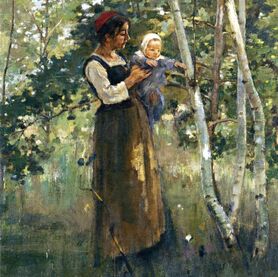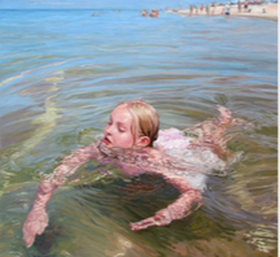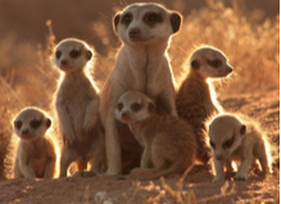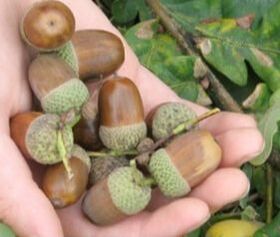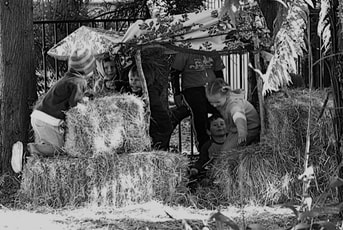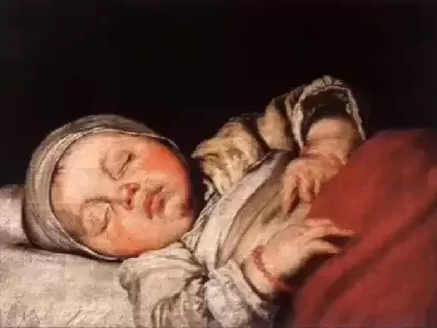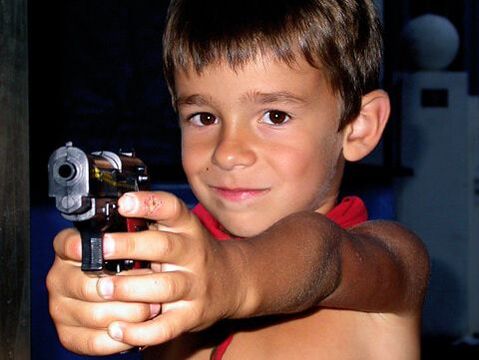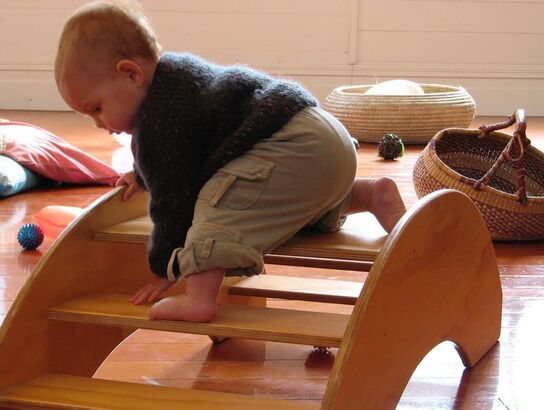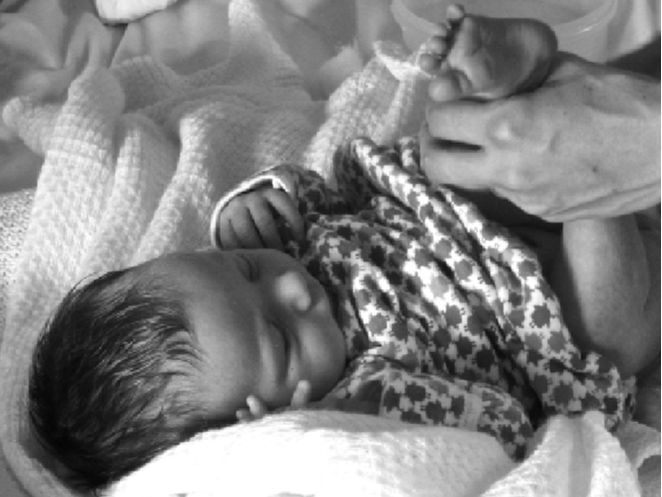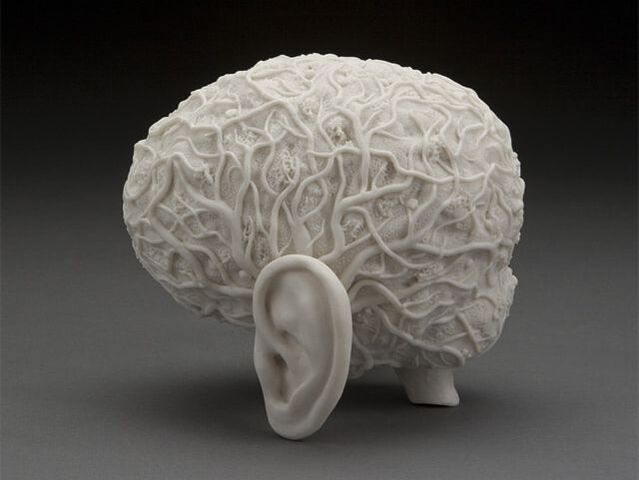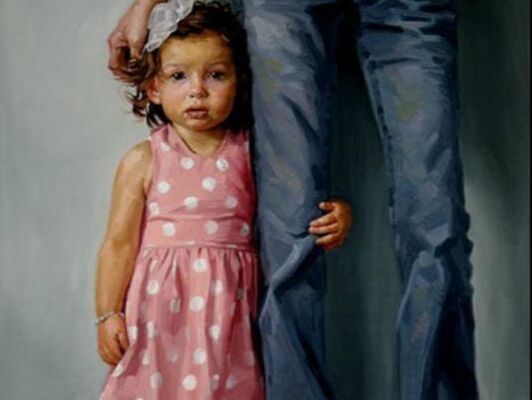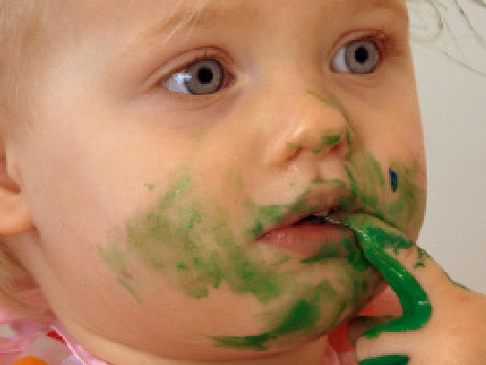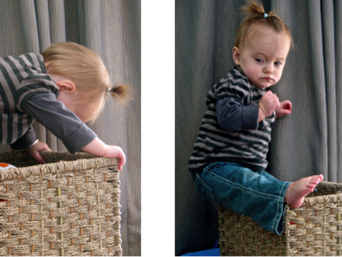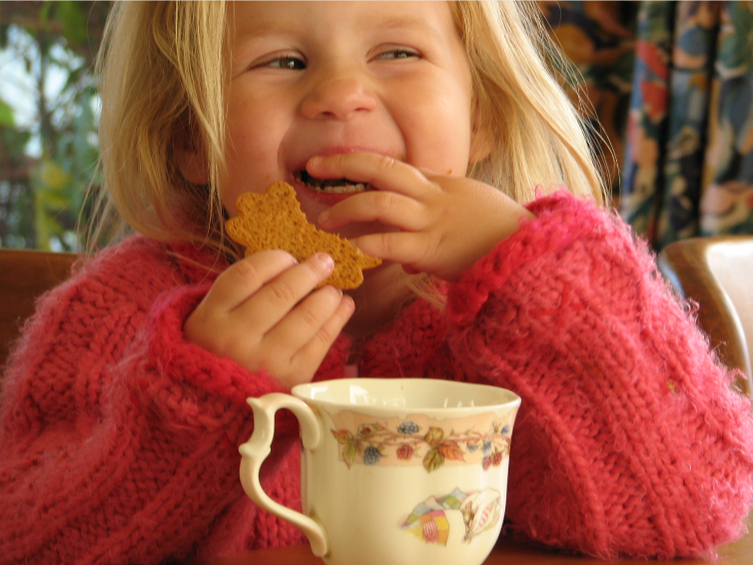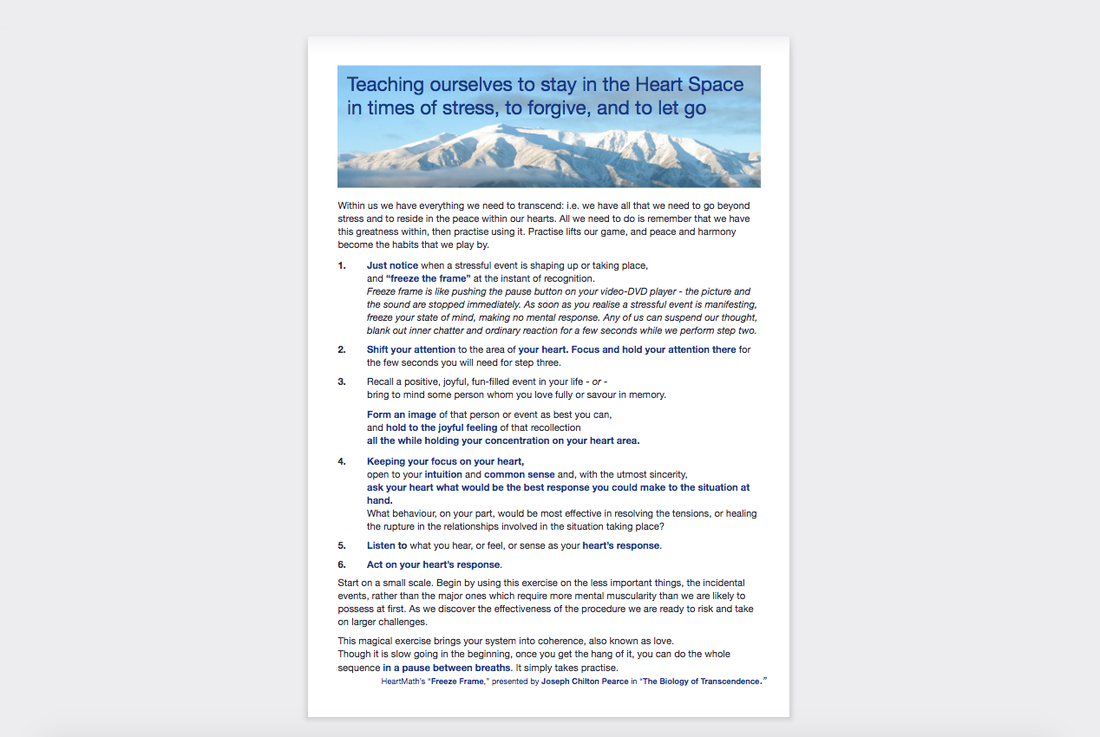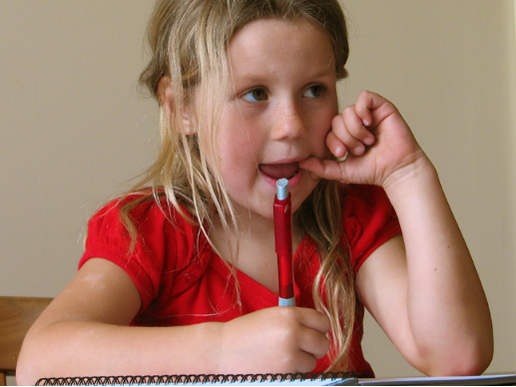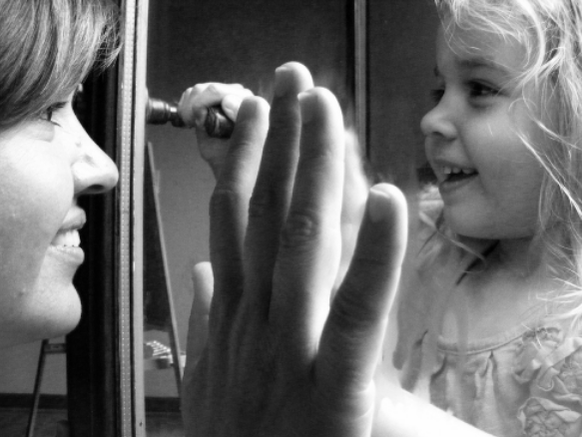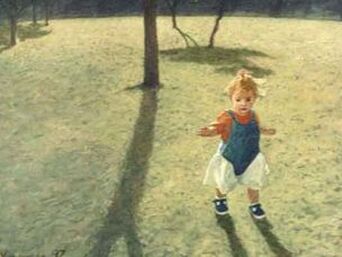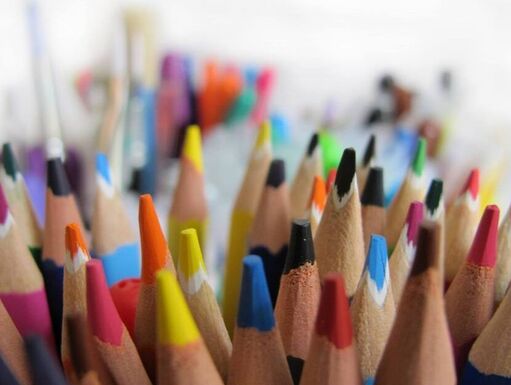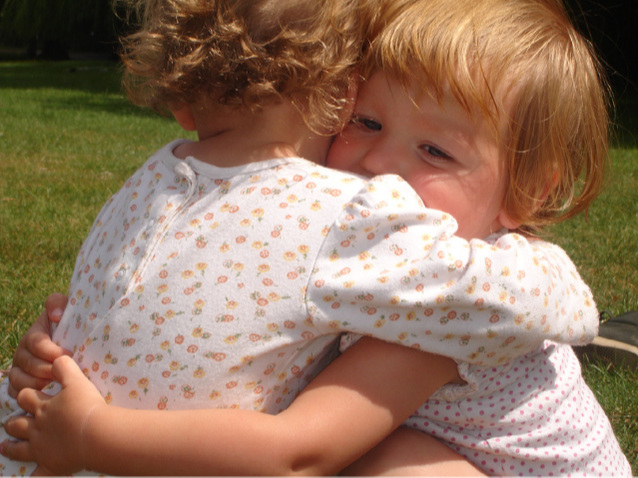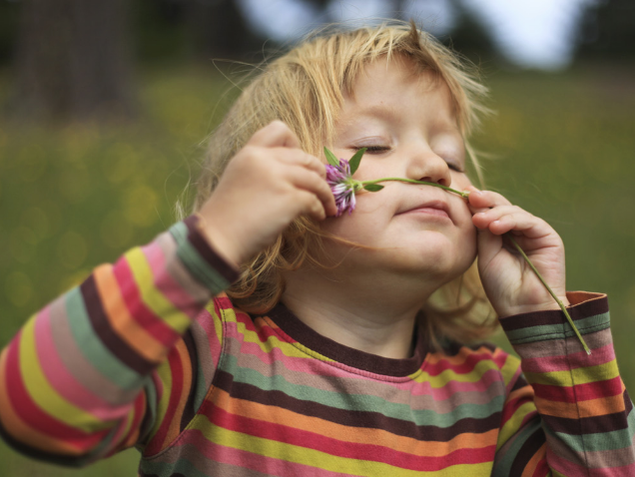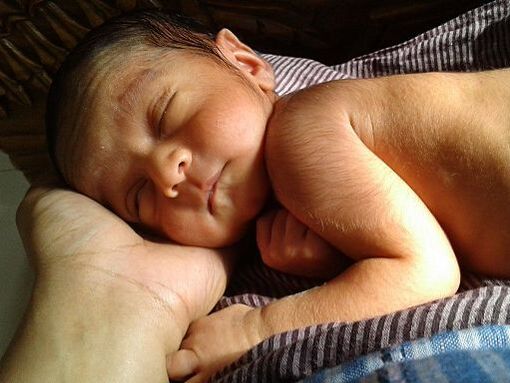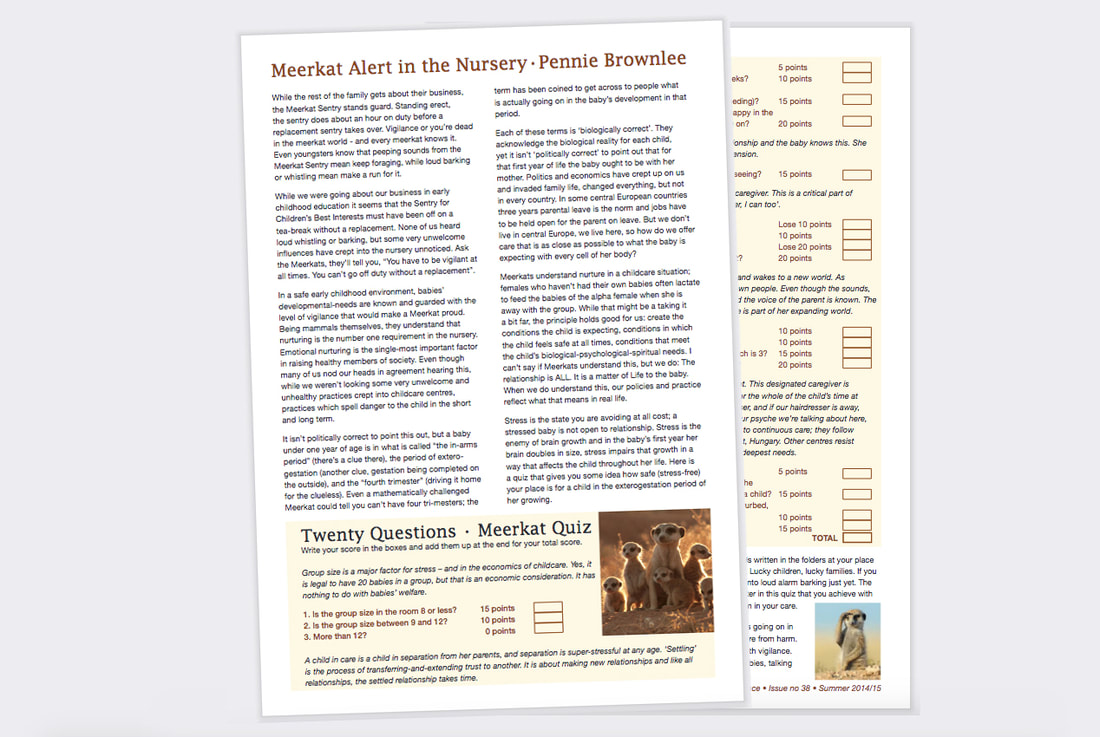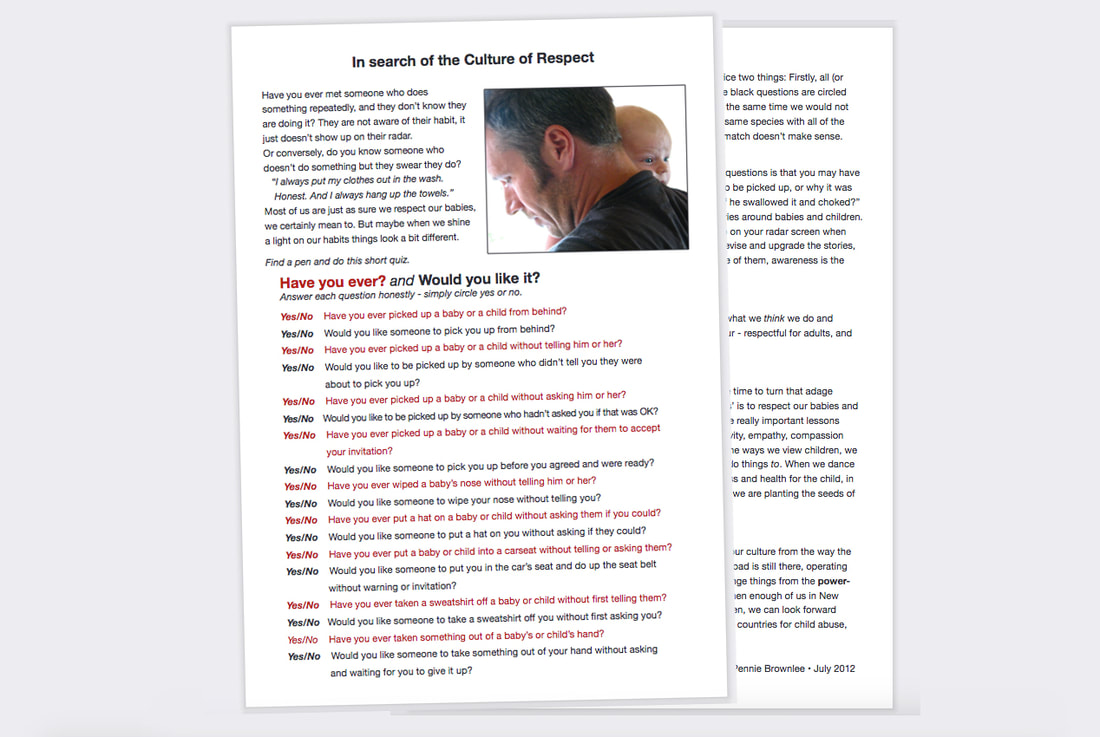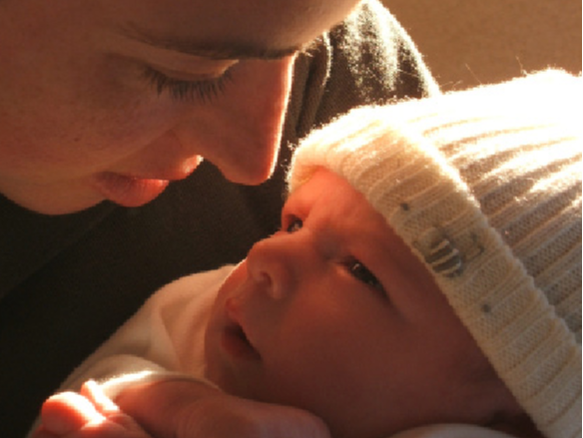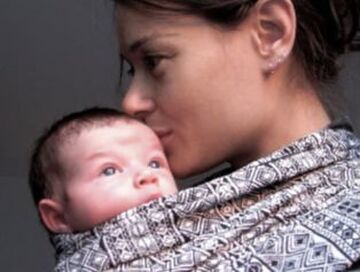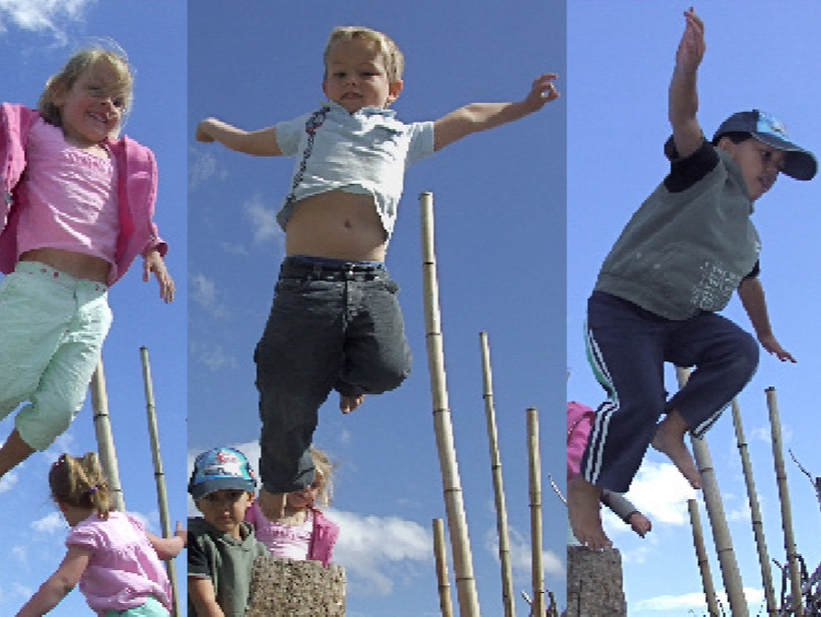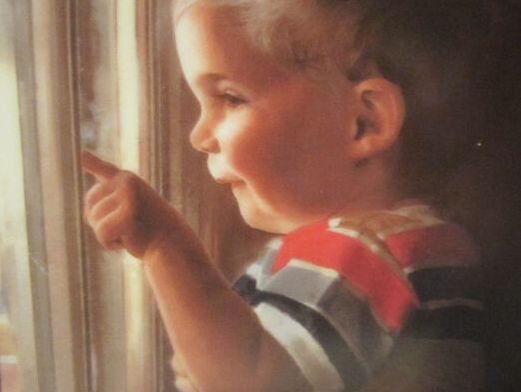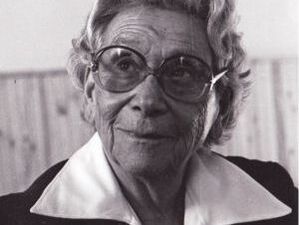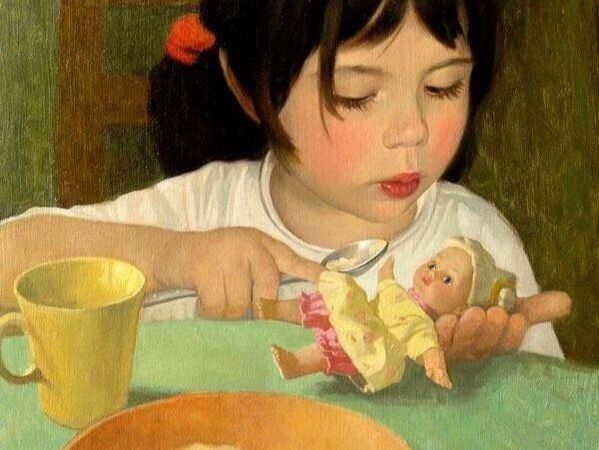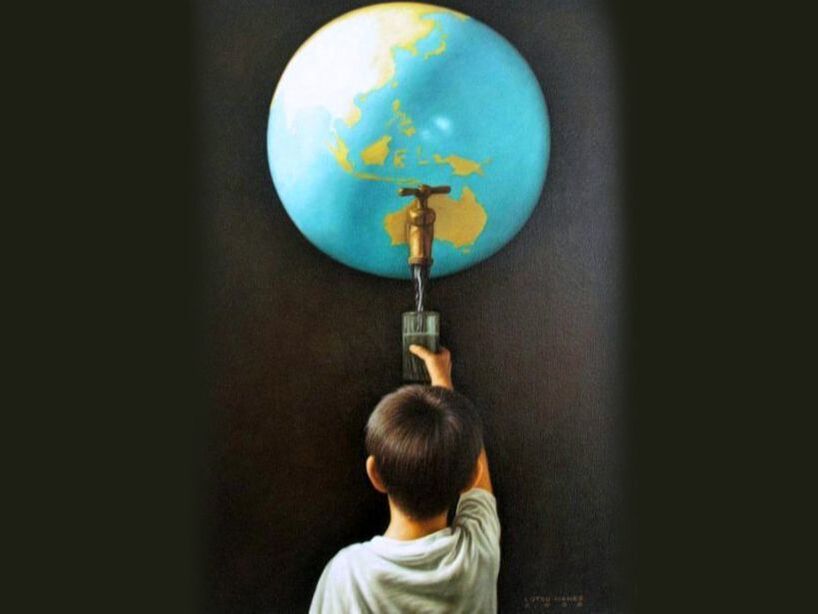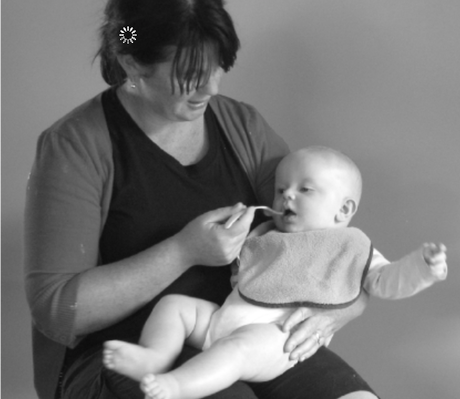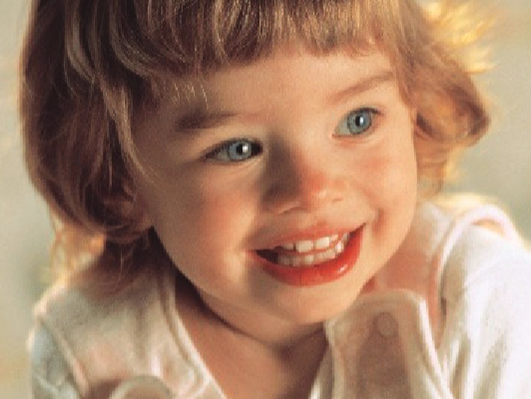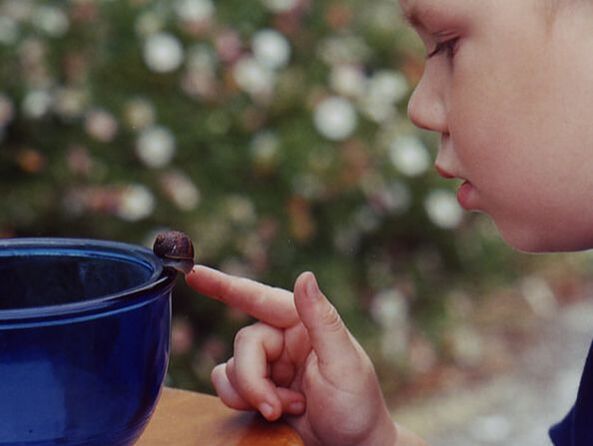Articles
Pennie wrote many articles over the decades, here we offer a selection for readers. Dive into this library of articles on child development, care and play. Written for teachers, early childhood professionals, parents and anyone who works with children.
Pennie wrote many articles over the decades, here we offer a selection for readers. Dive into this library of articles on child development, care and play. Written for teachers, early childhood professionals, parents and anyone who works with children.
|
Parenting Evolution
Parenting Evolution is us, it is you and me. It's us following nature's child-rearing classic, "The Child’s Biology". It's us matching our nurturing to the child's biological and emotional needs. It’s us striving for a better ways to handle ourselves when the heat is on. Parental evolution and societal evolution both begin in the heart. |
|
The Spring Clean Challenge
I think therefore I am. Now that the weather is warming up I have been thinking about thinking. It's funny what goes through your mind, over and over and over and.... I have noticed that "it's too cold it's too cold it's too cold..." seems to have lodged itself in my brain somewhere. It starts up with just the slightest provocation, "It's too cold it's too cold it's too cold...". |
|
The Best Possible Start in Group Care
There isn't one baby who would choose to be in care, we have made that choice for them - and having made a choice that runs counter to their biological needs and longings, we had better 'know what we are doing'. And with few exceptions, we don't know what we are doing. |
|
Autumn Abundance
To those of you who are fascinated by superior and amazing learning materials for our children, this is your season. Nature's harvest in the Autumn doesn't stop at pumpkins, apples and feijoas; educational equipment is also part of the harvest. As is usual with Nature's abundance and generosity, her harvest won't cost you anything more than the time it takes you to harvest it. |
|
Children’s Play and Virtual Reality
With the tech industries’ venture into the ‘metaverse’, it’s urgent we take the time to see what this means for our children and their growth and development. Play in the real world is not an optional extra for our children.
This article looks at play as one of the core biological needs of the human child, and how it compares with virtual reality (VR) in meeting the Biological Imperatives for optimum development. When we have an understanding of how the child’s brain manages 2D image technology, and the super sensory real three dimensional world, we can create an environment that supports optimum-wholistic development.
| |||||||||
|
A Long Time Coming
What would make early childhood institutions take child development seriously? This article looks at the very specific and special needs of a baby who is still in gestation - the baby up to one year old. It looks at some of the ways that the education policy-makers and practitioners ignore the needs of the infants they are charged with protecting.
| |||||||||
|
A Short Story for Far Sighted Parents
As a parent, there will be times when you are very challenged by your children - they won’t listen, they won’t do what you ask, they fight when you have asked them not to, they won’t stay in bed when you put them there, they melt down when you are out and people are looking.... That is the nature of childhood. This article suggests we consider the perspective with which we view our children when they challenge us like this.
| |||||||||
|
Bang Bang! You're Dead
"The National Rifle Association says that, "Guns don't kill people, people do". But I think the gun helps, you know, I think it helps. I think just standing there going, "Bang!" That's not going to kill too many people is it?" - Eddie Izzard This article ponders on children, guns, play and the role of the parent or teacher in that mix.
| |||||||||
|
Be Nice, You've Got to Share
Most adults view conflict between infants and toddlers through very distorted lenses, and the view leads to distorted social skills. This article ponders on our role alongside children learning all they need to learn before they can share.
| |||||||||
|
Beware the Two Legged Stool:
The Systematic Marginalisation of Parents as Educators Early childhood centres in their present form are a relatively new invention and their 'press releases' work against parents and families in very subtle and destructive ways. This article explores the possibilities of elevating and supporting parents in their role as primary educators.
| |||||||||
|
Clean and Dry: Toileting and Young Children
At the Emmi Pikler Institute children mastered being 'clean and dry' without any training, rewards, star charts, threats, and shaming. This article explores how to recognise the physical, behavioural and psychological development required for the child to achieve mastery in becoming clean and dry effortlessly.
| |||||||||
|
Computers and Early Childhood: Are They Compatible?
Many adults - parents and teachers alike - believe computers are essential to their children's education. For the child under six/seven the exact opposite is true. This article clarifies the difference between knowledge and information, and it explains sensory-motor learning and development and its critical role in laying the foundation for later higher abstract metaphoric symbolic learning.
| |||||||||
|
No Place For Computers in Early Childhood
Computers interfere with what is supposed to happen in a young child's mind-brain-body. By definition, the two dimensional medium cannot provide what the mind-brain-body is counting on for optimum development. This article considers the arguments put forward by the pro-computer-in-early-childhood lobby and answers them in light of what we know about learning and child development, in particular, brain development and function.
| |||||||||
|
Cultural Blindness: Killing Play and Imagination
"The creation of something new is not accomplished by the intellect but by the play instinct." - C G Jung This article was written for the conference, "The Sacred Urge to Play". It looks at the current cultural norm of 'fake education' and the lethal consequences it has on play, and on the highest dimension of human activity - creativity. 2011.
| |||||||||
|
Dance with me in the Heart: It's a partner-dance, by invitation only
Our culture has a pathological attitude toward toddlers. How else could we have coined the term, ‘the terrible twos’, or written best sellers with these titles, “Taming the Terrible Twos: A Parents’ Survival Guide”? “Toddler Taming: A Survival Guide for Parents”, “ Toddler Taming Tips”. Toddlers are exploring and developing their autonomy. They are famous for saying 'No" and rejecting adults' use of power - unless they are being offered true partnership, then they are models of cooperation. In this article we explore the dynamics of partnership, and the four easy steps with which to create a smooth working partnership with a toddler who is unfolding her autonomy. 2013.
| |||||||||
|
Eat Paint?
I have yet to meet the adult who eats paint, even for fun. So why do we set infants up to dine on paint? This article looks at the developmentally inappropriate provision of paint for children who are still exploring everything in their world through the acute senses of the mouth. 2009.
| |||||||||
|
Ego and the Baby
Or why your colleagues huff and puff when you trust infants "What is important is that we learn what is essential. What is essential is to observe ... then you will respond in the right way." - Dr Emmi Pikler When we learn to be with young children in the way that serves them we observe more and do less. Most of us have been trained to do the opposite. We have been taught to 'get in there and teach, scaffold, and make the most of the teachable moment'. When you realise that 'teaching doesn't equal learning', when you observe more and do less, your colleagues can have a very big problem with that. This article looks at how you might ride that out.
| |||||||||
|
Entering the Heart
If we are to learn to live in our hearts - consciously - we will need to start building up a conscious awareness of how to do that. This PDF gives you the simple instructions for a beginning to heart awareness, and making it part of a daily practice.
| |||||||||
|
Food Should Always Be A Pleasure
Food is basic to survival, and it also is a major area where trust is born between the infant and adults. The adult who has enough sensitivity to see when a small child is ready for food, and when s/he has had enough is trustworthy. Such an adult models kindness and respect to the infant, and the child feels safe, loved and understood.
| |||||||||
|
The Freeze Frame PDF
The freeze frame comes from the work of the renown HeartMath Institute, and it is an exercise of 'cardiac fitness'. When we can do the freeze frame we can enter and stay in the heart at will. This PDF gives you full instructions for the freeze frame as presented by Joseph Chilton Pearce in his wonderful book, "The Biology of Transcendence".
| |||||||
|
Getting Ready for School
In Scandinavia and other northern countries, abstract learning (code cracking symbols) begins when a child's developing brain comes on stream for abstract learning, that is, between 6 and 7. What about us? This article looks at the learnings which the child is best suited for in the early years up to five. It reassures both parents and teachers and asks them to resist the prevalent push to turn early childhood facilities into developmentally-inappropriate watered-down schools.
| |||||||||
|
Settling: Getting to Know You
This article outlines the process of settling a family into the daycare centre at The Pikler Institute. It is taken from the keynote presentation by Dr Puspoki at the NZCA Te Tari Puna Ora Conference, Auckland, 2009. "This mutual time of getting to know each other is what we call, 'getting into the habit' or 'settling'." - Dr Gabriella Puspoki, Emmi Pikler Institute
| |||||||||
|
Human Being - Human Doing
Being supported to learn is one of the best, energy boosting, creativity-unleashing experiences I know of (no need to ingest anything). Conversely, having people interfere and block learning is quite the opposite - it deadens the spirit, the brain and the body. This article looks at a balance between doing and being in our teaching so that our children are free to make their own knowledge.
| |||||||||
|
Keeping Our Kids Occupied in our Family Bubble
In 2020 New Zealand went into lockdown to halt the spread of Covid 19, many parents are asking for ideas to keep their children occupied for weeks on end. This article gives looks at the foundations in a family bubble so that the children feel safe enough to engage in some of the ideas offered. Warm wishes to you as you navigate these strange times with your family.
| |||||||||
|
Know Your Colours
"I have always wanted my colours to sing." - Paul Delvaux This article looks at the way children learn their colours, and how we can help them to do that effortlessly.
| |||||||||
|
Literacy and Numeracy - Big Deal
When people lack the skills to sail through the inevitable storms of conflict, they create a living hell for themselves and others: hell in the home, hell in the playground, hell in the workplace, and hell on earth. Learning the skills to create heaven must be our first priority. This article looks at 'people literacy' and explores why it is the first literacy, the one we would do well to concentrate on if we want children who will know the love, happiness and friendship that is their birthright.
| |||||||||
|
Let the Children Play. Please.
The learning we did at school can - and does - get right in the way of setting up a successful, creative, peaceful play based learning programme. It is not only early childhood and primary teachers that need to unpick this to reach success; they will also need to get the parents on board with them. The parents too had years of schooling that left them believing that 'play does not constitute education'. This article looks at how deep this learning is that interferes with our intentions, and it unpicks some of the mindset that can sabotage our work. Published in Issue 57, Spring 2019 of "Space" • Uploaded in October 2019
| |||||||||
|
Moths in the Family Fabric: Stitching up Children's Rights
I am deeply distressed by the way our babies, toddlers, young children and their families are being treated by decision makers and policy makers. This has led me to reading in fields formerly foreign to me in an attempt to understand what is underpinning the increase of - what I consider to be - formalised child and family abuse. This article takes a look at all the 'dots' and joins them up.
| |||||||||
|
Movement for Playful, Intelligent Children
When we have a new baby many of us are not quite sure what to expect. Not too many have had training in the natural unfolding of movement in infants so we do not know how to best support it. This article outlines some of the essential learnings that babies and young children accomplish by being free to move. You will find simple guidelines on how to support your baby from lying on their back - which is all they can do by themselves when they are born, to being up and running and climbing trees.
| |||||||||
|
Natural Reading, Reading Nature
Wanting children to be in tune with, and to respect nature is not enough. It is like wanting our children to read text. We have to do something to make both happen. This article explores one of the two basic literacies that precede the literacy with text we usually think of when we think 'literacy'. It explores ecoliteracy. People literacy and ecoliteracy (in that order) are the foundations for belonging in this world, and for spiritual, mental, intellectual and physical health.
| |||||||||
|
Possums or Possibilities? Pondering on Children, Culture and Cultural Imports
There have been people expressing their opinion as to why an Approach to caring for children from the continent of Europe has no place in Aotearoa New Zealand. This article looks at an indigenous 'model' of children and care as outlined by Dr Rangimarie Turuki Rose Pere alongside the Approach to care of children as outlined by the Hungarian paediatrician Dr Emmi Pikler - and where those two approaches meet. First published in the First years : New Zealand journal of infant and toddler education = Ngā tau tuatahi, 2012; v.14 n.1:p.24-27; issn.
| |||||||||
|
Quiz - Twenty Questions - Meerkat Alert in the Nursery PDF
Settling into care - an exemplary model Many people take more care choosing a suitable kennel for their dog than they do when putting their child into day care. When a parent rings and expects to have their baby start in care the following week, without any visits and settling, you know something is deeply wrong with our understanding of babies and children. But when centres accept the baby without a period of 'getting to know you' it is time to really worry for every baby in that establishment. The majority of staff and management in early childhood centres have had little or no training for the critical time when a child first enters a centre and experiences separation from their emotional anchor. The separation can be handled well, becoming the 'transfer of trust' the baby needs to accomplish for their Wellbeing. Or sadly, and much more commonly, the separation is an emotional and spiritual betrayal, with lasting consequences for the child. Take this quiz and see how your centre fares.
| |||||||
|
Quiz - Self care is Self Love PDF
"You yourself, as much as anybody in the entire universe, deserve your own love and affection." - Buddha A quick quiz reminding us of some of the aspects of loving kindness towards ourselves.
| |||||||
|
Quiz - Towards a Culture of Kindness and Respect
Maybe we think we are more respectful of babies and children than we are. This is a short quiz which gets us thinking about respect and babies and children.
| |||||||
|
Respect as the Default Setting
"Adults teach children in three important ways: The first is by example, the second is by example, the third is by example." - Albert Schweitzer This article was first published in the "Yeah Baby" conference booklet by Childspace. It looks at the lack of respect for children within our culture and offers some practical ways to change our personal and collective default settings in our behaviour with babies and children.
| |||||||||
|
Six Great Expectations for Earthlings
There are three great sequential bondings which must take place for the healthy growth of a human child: with the womb, with the mother and then with the earth. They can fail when we do not know how to support them. This article explores the bondings and our role in ensuring each is successful.
| |||||||||
|
Something Made Me Do It
When the sperm and egg unite, they begin the physical unfolding of the patterns that are 'Human Being'. Among the most important of these patterns are the patterns of play because they unfold the body, the intellect and intelligences, the psyche, the mind, the spirit... This article is an introduction to these universal play patterns which some have termed 'schema' but which we call 'urges' because we think that better describes their modus-operandi.
| |||||||||
|
Chocolate Biscuit Meditation
Justification is the art of telling ourselves great stories so we'll feel better doing dodgy things. This article explores the relationship between television/screen time and play, learning, development and children's imagination.
| |||||||||
|
The Great Escape - Getting Children Outdoors
Children are not meant to be raised in captivity, nor kept under protective house arrest. Children long to go outside, unless they are addicted to screens. This article looks at the 'locks' that keep children indoors and how to pick them. It offers a discussion starter for the team that is building their philosophy on outdoor play and ecoliteracy. It gives a place to begin the conversation with parents when they enrol their child with you, so parents are with you from the beginning on this one.
| |||||||||
|
The Only Person Who Can Do Pikler is Dead:
Or why it isn't a good idea to say "We do Pikler at Our Centre". Every baby has biological imperatives - these are the dictates of the biology of the unfolding Human Pattern. The Human Pattern is universal and genetically encoded. Every baby is in a culture that has cultural imperatives - the things cultures believe about babies and the things a culture says must happen to a baby. The cultural imperatives are man-made - and sometimes they line up with the Human Pattern, but research over the last 60 years points out than more often they don't - with long lasting effects on the child and society. This article looks at Dr Emmi Pikler's Approach because it is the approach that most closely matches the biological imperatives for infants and toddlers. It gives reasons why we benefit by thinking in terms of The Culture of Kindness rather than saying, "We do Pikler".
| |||||||||
|
The Sacred Urge to Play - It Comes From the Inside
What if the whole purpose of human Life is to play? There are two continuums of play, the genetically encoded biological continuum and the man-made ideological continuum. If we are going to support children in their learning we need to know the difference between the two, and to know where our beliefs sit on the ideological continuum. This article looks at the genetically encoded patterns of play alongside the less important ideological play continuum and helps us sort out where we sit.
| |||||||||
|
The Wonder of Spring
Ecoliteracy depends on children having authentic experiences of the transformations that are the essence of Spring, busy-work with cardboard lambs, glue and cotton-wool won't do it. This article gives some ideas for real exploration for both the teacher and the children.
| |||||||||
|
Water Guardians
"We forget that the water cycle and the life cycle are one." - Jacques Cousteau Water is the most precious element on Earth after air. This pondering looks at our role with children as Guardians of the Water Cycle, and therefore, the Life Cycle.
| |||||||||
|
We are All Free and Equal Human Beings
Pondering on Help, Support and Interference There is not one baby who needs to be helped to reach his milestones. Each child has her own unique timing for unfolding the great human pattern that is coded within her. This article ponders on the new level of what support means when living with babies and young children. It looks at the inappropriateness of helping and interfering in children's built-in timetables of unfolding. It is a call to learn enough about human unfolding (development) so that we can trust our babies.
| |||||||||
|
Will You, Won't You, Will You Join the Dance?
When the child's drive for autonomy outstrips the adult's knowledge and skills for making a partnership it is almost always the child who gets the blame. This article looks that the role of will in the child's development and how to work with it.
| |||||||||
|
Wonder Fuels a Love Affair
Learning is pure joy for the child who explores the world with wonder. This article outlines how to facilitate the effortless learning that happens when we wonder.
| |||||||||
